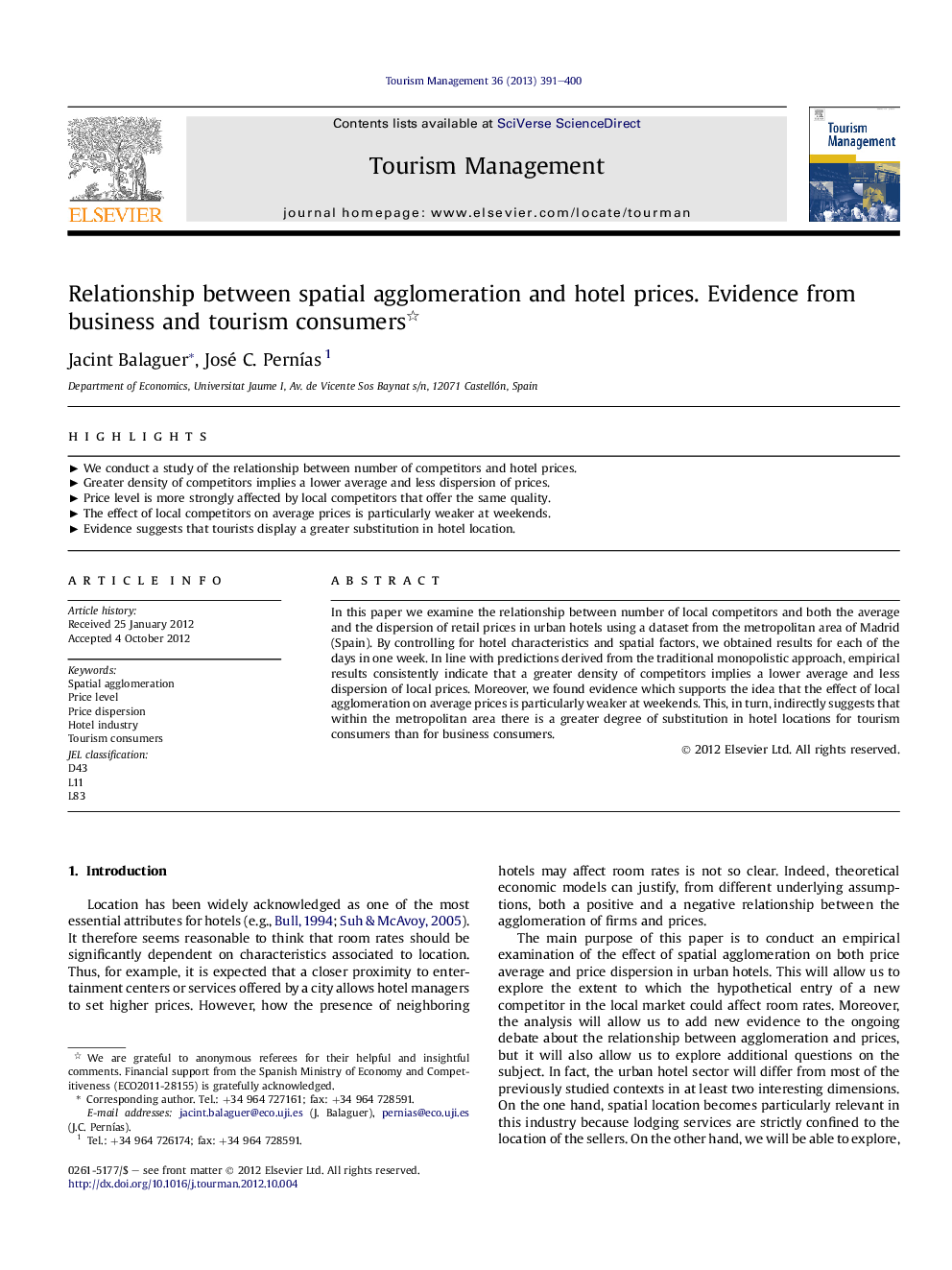| Article ID | Journal | Published Year | Pages | File Type |
|---|---|---|---|---|
| 1012298 | Tourism Management | 2013 | 10 Pages |
In this paper we examine the relationship between number of local competitors and both the average and the dispersion of retail prices in urban hotels using a dataset from the metropolitan area of Madrid (Spain). By controlling for hotel characteristics and spatial factors, we obtained results for each of the days in one week. In line with predictions derived from the traditional monopolistic approach, empirical results consistently indicate that a greater density of competitors implies a lower average and less dispersion of local prices. Moreover, we found evidence which supports the idea that the effect of local agglomeration on average prices is particularly weaker at weekends. This, in turn, indirectly suggests that within the metropolitan area there is a greater degree of substitution in hotel locations for tourism consumers than for business consumers.
► We conduct a study of the relationship between number of competitors and hotel prices. ► Greater density of competitors implies a lower average and less dispersion of prices. ► Price level is more strongly affected by local competitors that offer the same quality. ► The effect of local competitors on average prices is particularly weaker at weekends. ► Evidence suggests that tourists display a greater substitution in hotel location.
